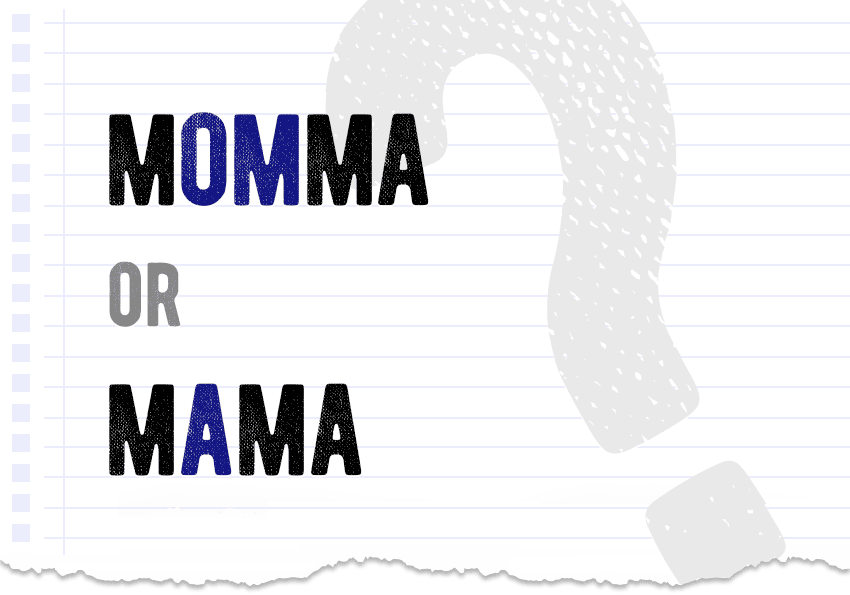Momma or mama – which one is correct?
Momma or mama? These are only two of many derivatives of the word mother that conveys the universally shared meaning of a female parent. The simplicity of the word and its numerous variations are related to language acquisition by toddlers. Such syllables as mo or ma are the first sounds a child makes. Therefore, in every language, the word mother might look and sound similar.

Momma or mama – what’s the difference?
Both momma and mama are diminutive and informal nouns. They are usually used to emphasize the emotional dimension of a statement. The form mama first appeared in the 1500s and still prevails in the UK. Momma, on the other hand, is more common in the US. Interestingly, both words, disregarding the spellings, are pronounced in the same way: /ˈmɑː.mə/.
Momma and mama – are those the only possible forms?
The word mother is one of the nouns that have many diminutive forms, some of which shall be used in specific contexts. In the USA, one might encounter the form ma that is considered archaic. It was used as a title for an older woman and placed before a surname. Furthermore, the form mama, also appearing as mamma, is often used to refer to a slightly older, attractive woman. The form mommy has a folksy meaning as well. It might refer to a wife or a girlfriend.
Momma or mama – which form is more common?
Oddly enough, momma and mama are not the most popular forms of the noun mother. In Australia, the United Kingdom, and Canada, the forms mum and mummy prevail, while in America, the most common are mom and mommy. The only thing that makes them different is their spelling.
Examples of momma and mama in sentences
- Only mama knows how to calm down her little kids.
- I used to live in Massachusetts with my mama and papa, but now I have a place on my own.
- Ben’s momma once told him not to worry about the things he cannot control.
- My momma and auntie are as alike as two peas in a pod because they are twins.


